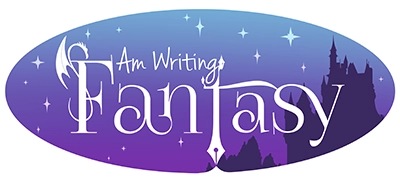Last time, we delved into dialogue tags, including if you really always have to use “said.” There was a lot covered in that post and if you missed it, check it out here.
In our examples, we managed to clarify who was speaking and how many people are present, but haven’t done much to help create the scene or built tension. This is where we are at after post 1:
“Where is it?” Cameron asked.
“Across Coldbrook stream. There… is a place,” Maryion said.
“That could be anywhere for miles. We’ll never find it,” Jyff swore.
“Tell me exactly where it was,” Cameron growled.
“Up stream from the crossing at the Deep Water crossing,” Maryion whispered.
“She’s lying,” Jyff hissed.
“Nah, you wouldn’t do that,” Cameron said. “You know what will happen then, right?”
And number two:
“They are comin,” Harry warned
“How long do we have?” Duke Emmerin asked.
“Hour, mayhaps two,” Harry said. “Not more.”
“Get the livestock inside and close the gates in forty-five minutes,” Duke Emmerin ordered. “Anyone who doesn’t make it will have to fend for themselves.”
The Captain of the Guard said quickly, “But, sire, your daughter—”
“I know where she is,” Duke Emmerin said. “I’m the one who sent her.”
“She’n might be safer t’where she at,” Harry sighed. “T’ese walls won’t never withstand the giants.”
I promised this time we’d talk about adverbs, because even though I tried really hard not to use one, “quickly” snuck into a sentence in the second example. It is hard to avoid them, especially when dealing with dialogue.
But before we get into when you should and why you shouldn’t use too many adverbs, let’s talk about what they are!
Adverbs
By definition, adverbs are a word or phrase that modifies or qualifies an adjective, verb, or other adverb or a word group, expressing a relation of place, time, circumstance, manner, cause, degree, etc. (e.g., gently, quite, then, there ). If you aren’t sure what they are, look for the words that end in -ly, that is a big clue (though there are more than just those), especially when adding a little bit of oomph to your dialogue.
And they do help! Just like the example above when I wrote “The Captain of the Guard said quickly,” you get a much better feel for how the dialogue they are referring to are being spoken and what that tells you about his mood. He isn’t just loafing around and drawing out the phrase as if he had no concern. You might not know what emotion he is feeling exactly, but you can guess he is bothered or worried. You might guess he cares, at least a little if not a lot, about the Duke’s daughter. All that inference from one word!
Adverbs are powerful.
So why wouldn’t you use them? Because, just like those fun dialogue tags we covered in Post 1 like “growled,” “sang,” and “whispered,” they TELL more than show. It is so easy to just feed your reader what the character is feeling when you should have a lot more description and action revealing the clues for the reader to put together into a whole.
If the first clue a character is angry is when you write “angrily,” then you haven’t been doing your job setting the scene and tone. Just like with dialogue tags other than “said” look at some of your favorite writers and the rock stars of your genre/sub-genre and see how many times they use adverbs. Once you get a feel for how many they include in 250 words (a standard printed page), follow that. There is also another thing to keep in mind.
NEVER use adverbs with a dialogue tag other than said.
That is just getting carried away! If you want to use “hoarsely,” don’t use “whispered,” even though it sounds so natural and easy to write “Gammen whispered, hoarsely.” That is just feeding too much information in one sentence. Use whispered alone. Then in the next part maybe use “said, hoarsely.” Or have the listener note the hoarseness of his voice. Dole the information out a bit at a time. Don’t dump it over the reader’s head all at once.
Plus, the dialogue tag and adverb are often repeating nearly identical information. If you are shouting, do you really need to add “angrily” to that? Do you shout in happiness? Possibly, but the rest of the scene should be letting people know if the character is in the middle of an argument or a party.
And one last thing, a comma should nearly always separate the adverb from the dialogue tag. Get in the habit of writing that way and make your editor happy!
So with all that in mind, where can I add some adverbs to the examples without getting too carried away?
“Where is it?” Cameron asked.
“Across Coldbrook stream. There… is a place,” Maryion said, nervously.
“That could be anywhere for miles. We’ll never find it,” Jyff swore.
“Tell me exactly where it was,” Cameron growled.
“Up stream from the crossing at the Deep Water crossing,” Maryion whispered.
“She’s lying,” Jyff hissed.
“Nah, you wouldn’t do that,” Cameron said. “You know what will happen then, right?”
And number two:
“They are comin,” Harry warned
“How long do we have?” Duke Emmerin asked, flatly.
“Hour, mayhaps two,” Harry said. “Not more.”
“Get the livestock inside and close the gates in forty-five minutes,” Duke Emmerin ordered. “Anyone who doesn’t make it will have to fend for themselves.”
The Captain of the Guard said quickly, “But, sire, your daughter—”
“I know where she is,” Duke Emmerin said. “I’m the one who sent her.”
“She’n might be safer t’where she at,” Harry sighed. “T’ese walls won’t never withstand the giants.”
What do you notice? It should be that I only added one adverb to the first example and a second one to the second example. And I really don’t think I need “flatly” in the second example. I’d probably take it out in edits.
Allowing your reader to decide the tone used when the Duke asks how long they have gives them the power to build the scene in their mind based on what they know of the character and what they feel should be happening in the moment. One of my favorite writing quotes is to “paint with the words you leave unsaid.” Don’t forget your reader is half the artist in the magic of creating and sharing a story. Leave them a bit of room to create too!
So what is next? We are going to add some action to this scene with action tags! Check back in the next post.









0 Comments